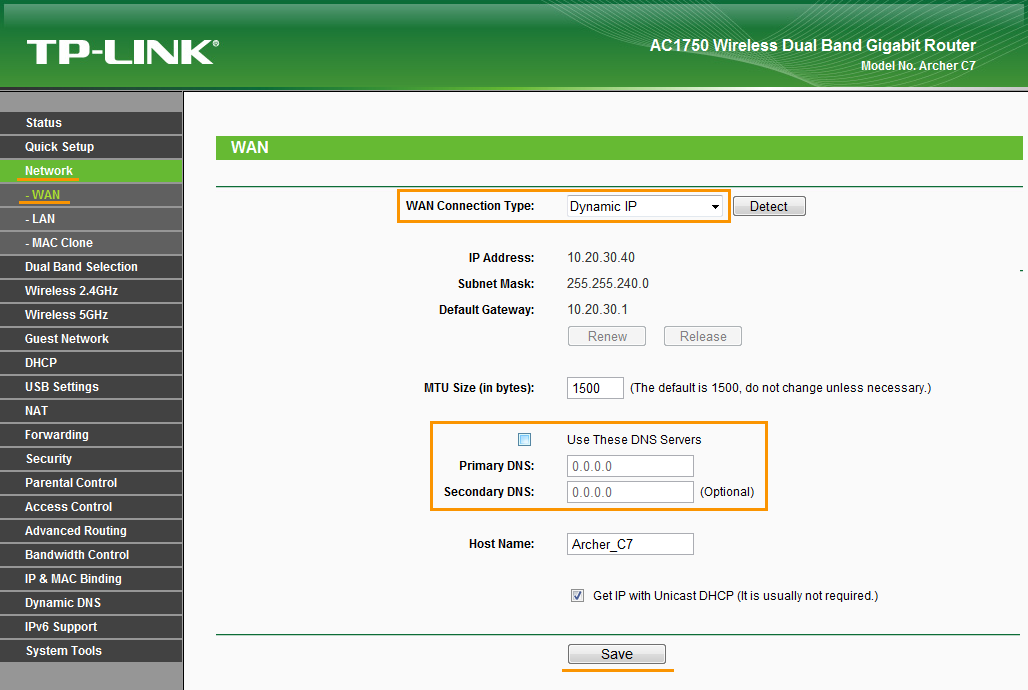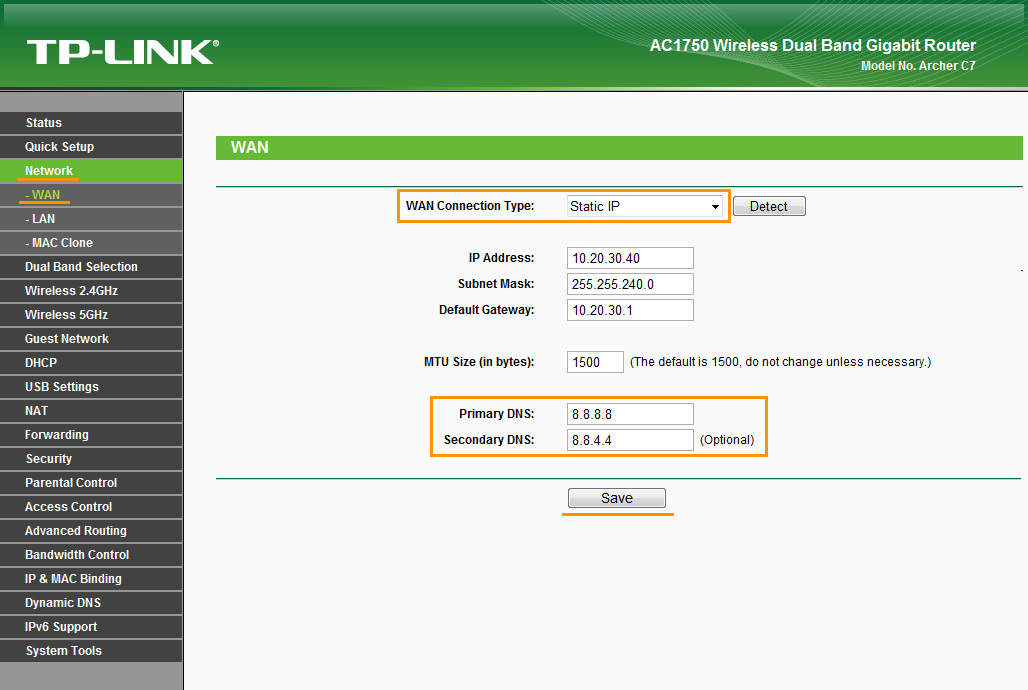Important:
Before trying to solve this problem, make sure to solve all other router problems detected by Avast. Otherwise the following fix will not be effective.
To configure TP-LINK wireless router:
- From the Wi-Fi Security results screen, select Go to your router settings to open the administration page of your TP-LINK router.
- Enter your router username and password, or contact the party who provided the router (e.g., your ISP).
- Go to
Dynamic DNS ▸ ensure that theEnable DDNS option is unchecked.
- or -
Go toAdvanced ▸ Dynamic DNS ▸ ensure that theEnable DDNS option is unchecked. - Go to
Network ▸ WAN .
- or -
Go toAdvanced ▸ Network ▸ WAN . - If your ISP supports automatic configuration:
- Change
WAN Connection Type toDynamic IP , orAutomatic IP . - Ensure that all
DNS server records are blank, or set to 0.0.0.0, i.e. IP with zero values (this applies also for static DNS records, if available in your router's LAN or DHCP settings when a localDHCP Server isEnabled ).
If your ISP doesn't support automatic configuration (e.g.WAN Connection Type is set toStatic IP ), fill inDNS server fields with IP addresses of reliable DNS servers, such as Google Public DNS, as shown below:
Primary DNS: 8.8.8.8 Secondary DNS: 8.8.4.4 - Change
- Confirm your changes by selecting
Save and reboot your router if necessary.
Note:
Due to the wide range of different router types by TP-LINK, we can offer vendor-specific instructions for frequently used routers, or general instructions for all other routers. For exact instructions please consult documentation for your router model or contact TP-LINK for further assistance.


